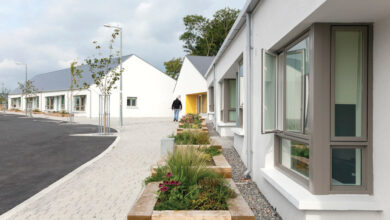Growth of the private rented sector: Key issues
Dr David Duffy, senior research officer with The Economic and Social Research Insitute, looks at the changing trends of private rental.
The private rented sector (PRS) in Ireland has grown rapidly over the past decade. In 2002, 11 per cent of the households were in private rented accommodation and while this declined slightly in the 2002 to 2006 period, the past number of years has seen significant growth in the sector. In 2011, the proportion of households in the PRS reached 18.5 per cent or 305,377 households. This corresponds to a 116 per cent increase in the period from 2002 or 160,060 additional households since 2006.
A number of factors may explain the growth in the private rented sector over the past number of years, including strong population and household formation growth, as well as increasing demand from students. The severe fall in house prices, which led to an increase in mortgage arrears and negative equity, may have resulted in potential buyers being more cautious about homeownership. In addition, the impact of the crisis has resulted in many buy-to-let (BTL) properties being in financial difficulty or arrears. This has curtailed the ability of landlords to maintain or expand their portfolio of properties or has resulted in them leaving the sector. High unemployment and cuts in income have resulted in affordability problems and increased demand for social housing.
The Private Residential Tenancies Board (PRTB) rent index shows the annual rate of growth in private sector rents over the period. Rents in Dublin began to grow again on an annual basis in the second half of 2011. Outside Dublin the return to annual growth took much longer and did not occur until the end of 2013.
Surveys of participants in the PRS were carried out in early summer 2014, pointing to some issues for the private rental sector. For many the rental sector represents a stage in the transition to homeownership, 72 per cent of tenants would prefer to own their own home rather than rent. Tenants in the Irish housing market point to credit access and the affordability of home buying as being amongst their reasons for renting. Interestingly, a majority of tenants, 61 per cent, view their renting experience as positive. Despite the relatively high levels of satisfaction, only 17 per cent of tenants agreed that they are happy renting and could see themselves renting long-term.
The main reasons tenants give for wishing to own are that they would like to be able to decorate and furnish their own home, they would prefer to pay a mortgage/purchase their own home rather than rent, and finally, they feel they have no security with renting because they could be asked to leave at any time. These findings suggest that two key issues for the sector are the ability to treat the rental property as your own and furnish it accordingly, and security of tenure.
An issue in the Irish housing market at present is supply of both rental and owner-occupied properties. Data from Sherry FitzGerald show that 33 per cent of properties for sale in 2014 were from investors seeking to exit the market while 19 per cent of all sales in the first half of 2014 were to investors. On the basis of these numbers only some of the rented properties sold by investors would remain in the rented sector, an issue which is likely to reduce the existing stock of rented properties. Of landlords responding to the survey, close to a third (29 per cent) intend to sell their properties as soon as they can.
In terms of renters’ rights, 33 per cent of tenants agreed with the statement that thy are not fully aware of their rights as a renter. One of the main issues that estate agents have to deal with both tenants and landlords is a lack of awareness of their rights and responsibilities as landlords and tenants.
Since the surveys were undertaken there have been a number of policy developments. Rent certainty proposals, whereby rents would be linked to the rate of inflation for three years until such time as supply comes on stream, have recently been proposed by Government. Separately, the introduction of new macro-prudential guidelines by the Central Bank is expected to have an impact on the trajectory of house prices and rents. While there are a number of issues that need to be addressed for the future sustainability of the sector, the survey results here point to a number of possible policy options, notably the ability to engage in a long-term lease, which would provide some stability for tenants, and increased security of tenure, if renting is to be a viable long-term tenure option.
It is also evident that one of the motivating factors for tenants to leave the sector is the desire to buy a property and be able to decorate and furnish their own home. In this regard, the option of renting unfurnished accommodation should exist. The surveys show there is a considerable room for improvement in regard to the awareness of tenants’ and landlords’ rights and responsibilities and actions are underway by the PRTB in this regard.






